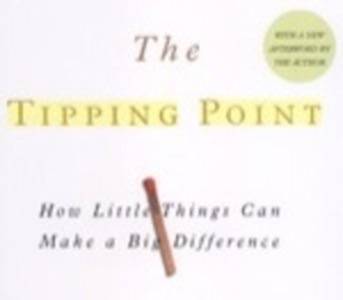
A new study by Canadian research firm
has surfaced data indicating that Malcolm Gladwell’s popular theory about key influencers moving markets may not be valid. Gladwell’s arguments in the 2000 book
had reached levels of cliche approaching
, in large part because of its seductiveness to marketers.
A number of thinkers (thanks for the link commenter felix) and now the Pollara study have been arguing that large numbers of people do not make decisions based on the advice of a small number of powerful influencers. The new data from Pollara does say that people use online social networks to make buying decisions, but they trust the advice of their friends and family on those networks far more than they do high-profile bloggers. There are a number of things about blogging that may facilitate this, as well.
From MediaPost today:
Of more than 1,100 adults polled in December, nearly 80% said they were very or somewhat more likely to consider buying products recommended by real-world friends and family, while only 23% reported being very or somewhat likely to consider a product pushed by “well-known bloggers.”
“This shows that popularity doesn’t always equate to credibility,” said Robert Hutton, executive vice president and general manager at Pollara. “Marketers might have to reconsider who the real influencers are out there.”
There are a couple of things we’d suggest need to be taken into consideration here, however.
- Popular bloggers still prime the pump, offering substantial visibility at a product or service’s launch and leading to later, more credible recommendations from friends and family.
- The quantity of blog posts may be a complicating factor. Who can keep up with all the recommendations? That quantity, as well as the job description of leading bloggers (to keep you excited about the new things they discover) also tend to lead to decreases in the quality of their recommendations. Your friends and family probably aren’t professional stuff-reviewers, so their recommendations are less frequent, less obligatory, less rushed to be first and ultimately more meaningful. The quality deficiency in the reviews of harried, high-volume bloggers can be so severe that many readers have said they only visit those blogs for the links to early-found resources. They click through those links and make their own judgement, often not even reading the bloggers’ thoughts on the subject.
- The study concluded that strangers with 10,000 friends on MySpace provide less potent recommendations than do friends and family, also on MySpace. We’d contend though that this is also a win for smaller social networks. Not that we want to encourage marketer-types to flood quality communities like Multiply, Vox, Ning and FriendFeed, but…the smart ones will find appropriate ways to be visible there. Can they do it more effectively than the many pathetic attempts to market in Twitter? Maybe, but don’t hold your breath. The marketing world was really hoping they could just win over some existing social media power users and have everyone else fall like dominoes. This study says that’s not how it works.
- The study is complicated by the fact that it focused on buying things. The biggest blogs on the web aren’t places readers go to find ways to spend money. There’s an almost rabid rejection in blog reading communities of anything that costs money, in fact.
Times are changing and the connection between technology and social relations is one that many people are watching closely. Facebook’s theory that friend activity/endorsement is the best advertisement may be supported by this data. Dr. Pepper’s hiring Tay “Chocolate Rain” Zonday to record a TV commercial may look even more ridiculous than it did on face.
The rise of the power-blogger as super-influencer makes a fun story, especially when the mainstream media profiles them as individuals – but in reality bloggers are probably playing a different roll than that of tipping point influencer. That’s what we’d suggest that you think about the matter, at least!










